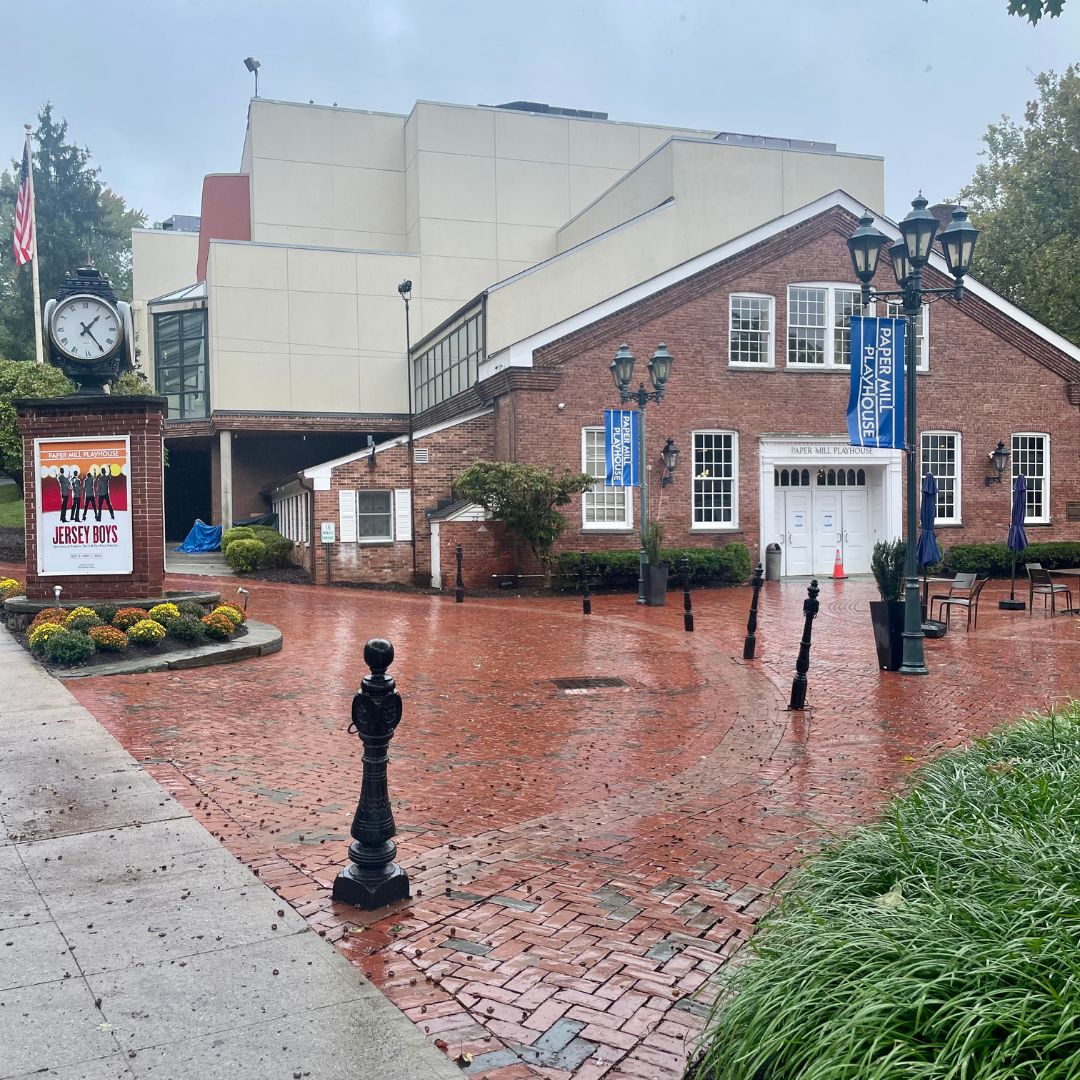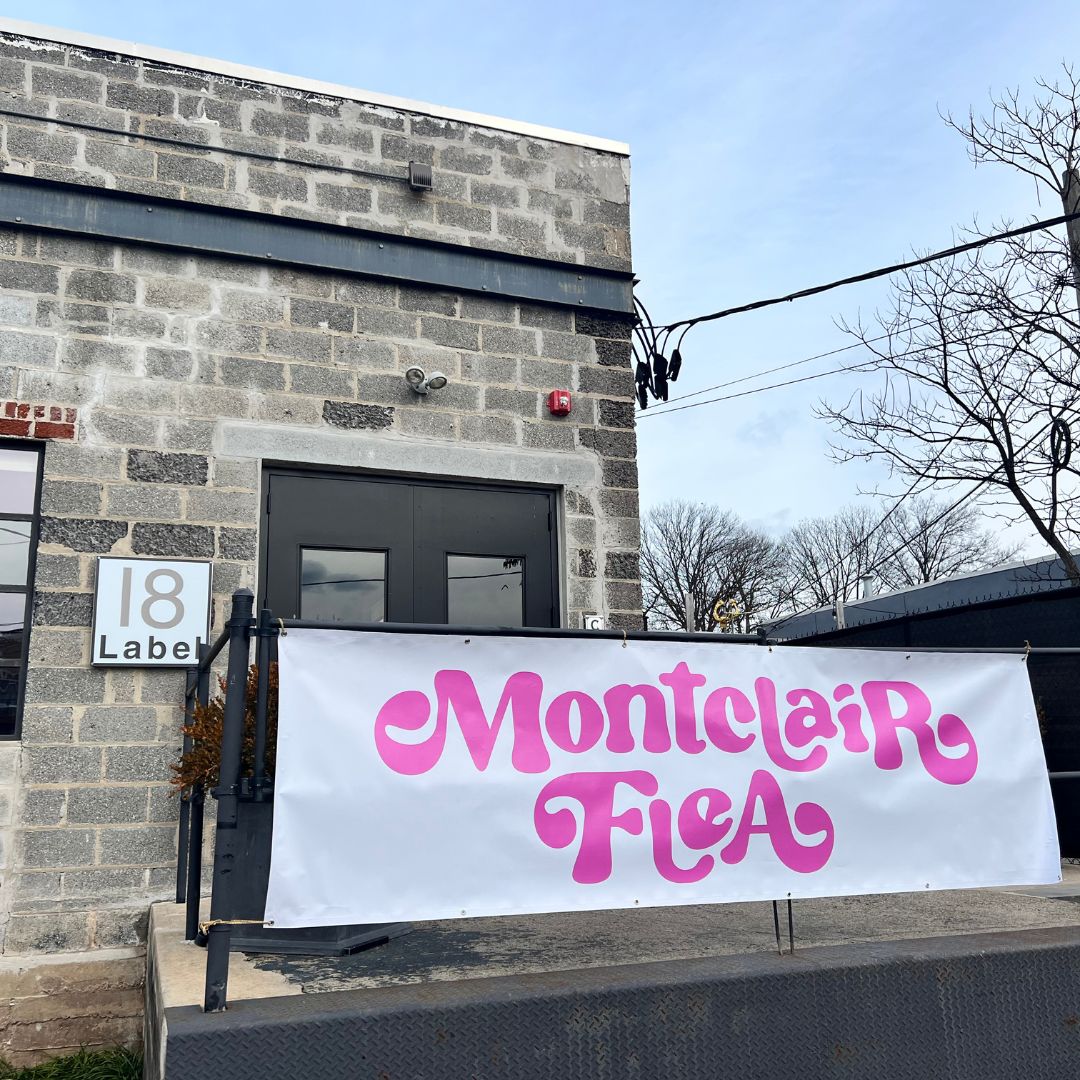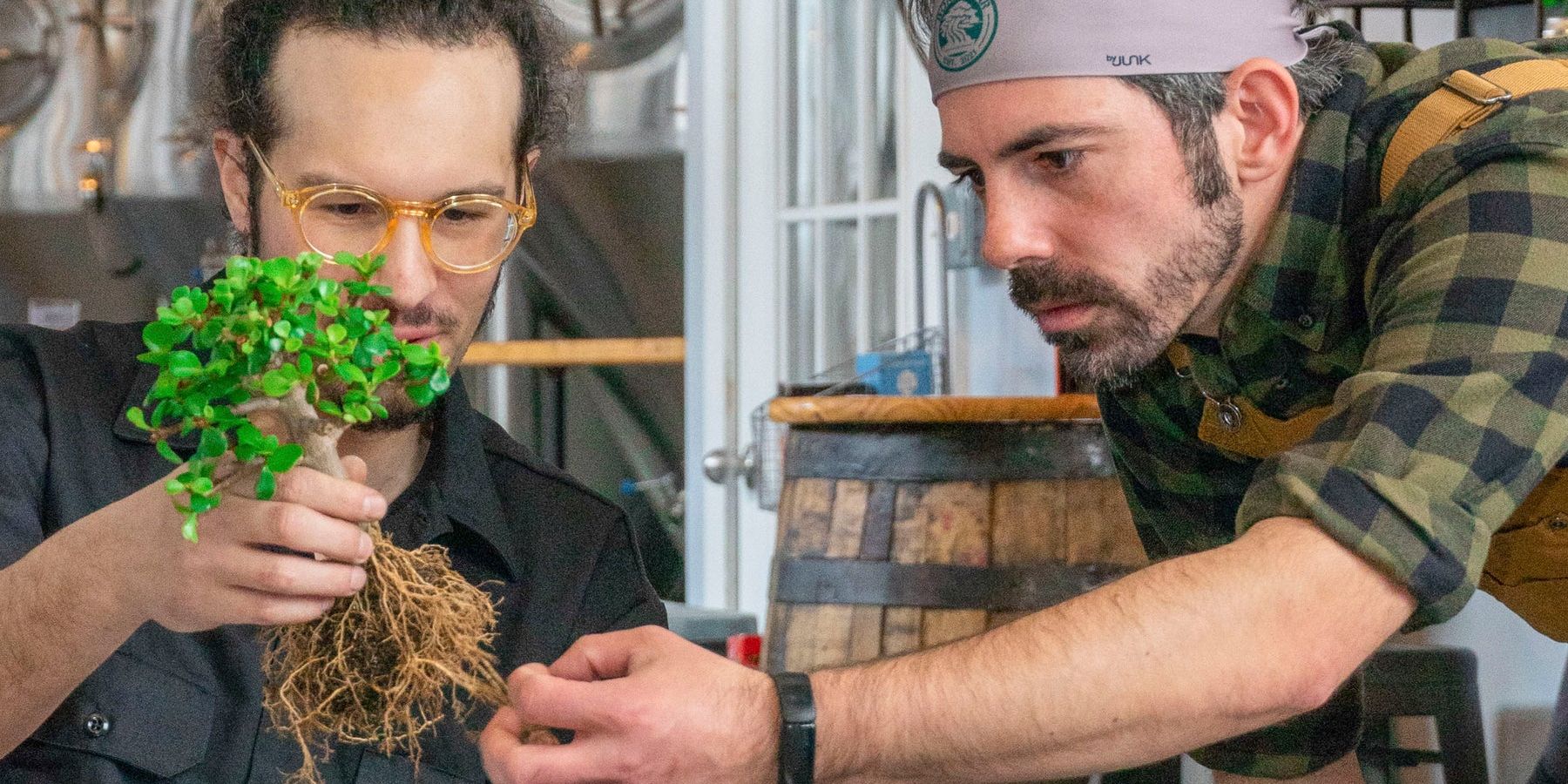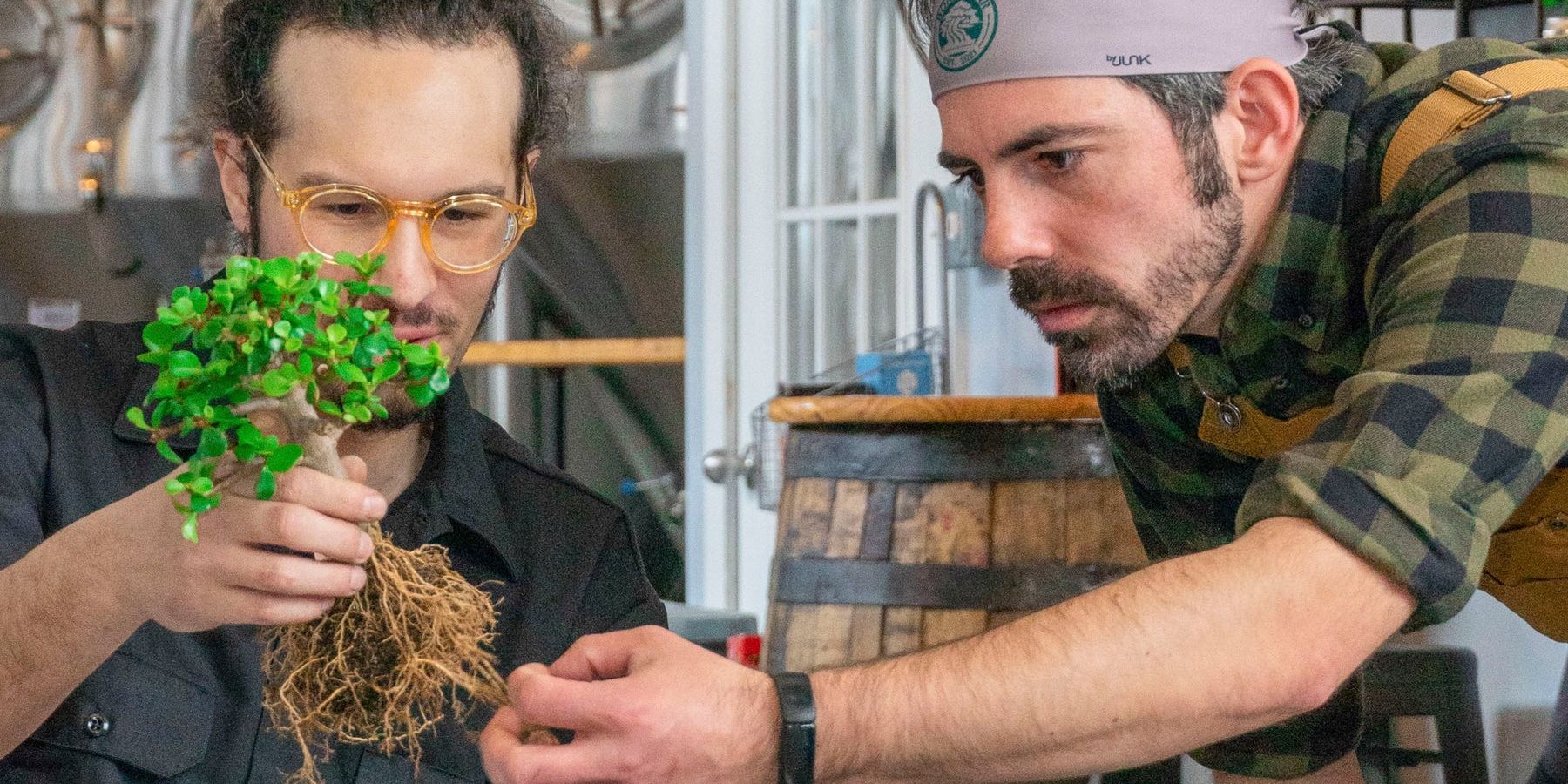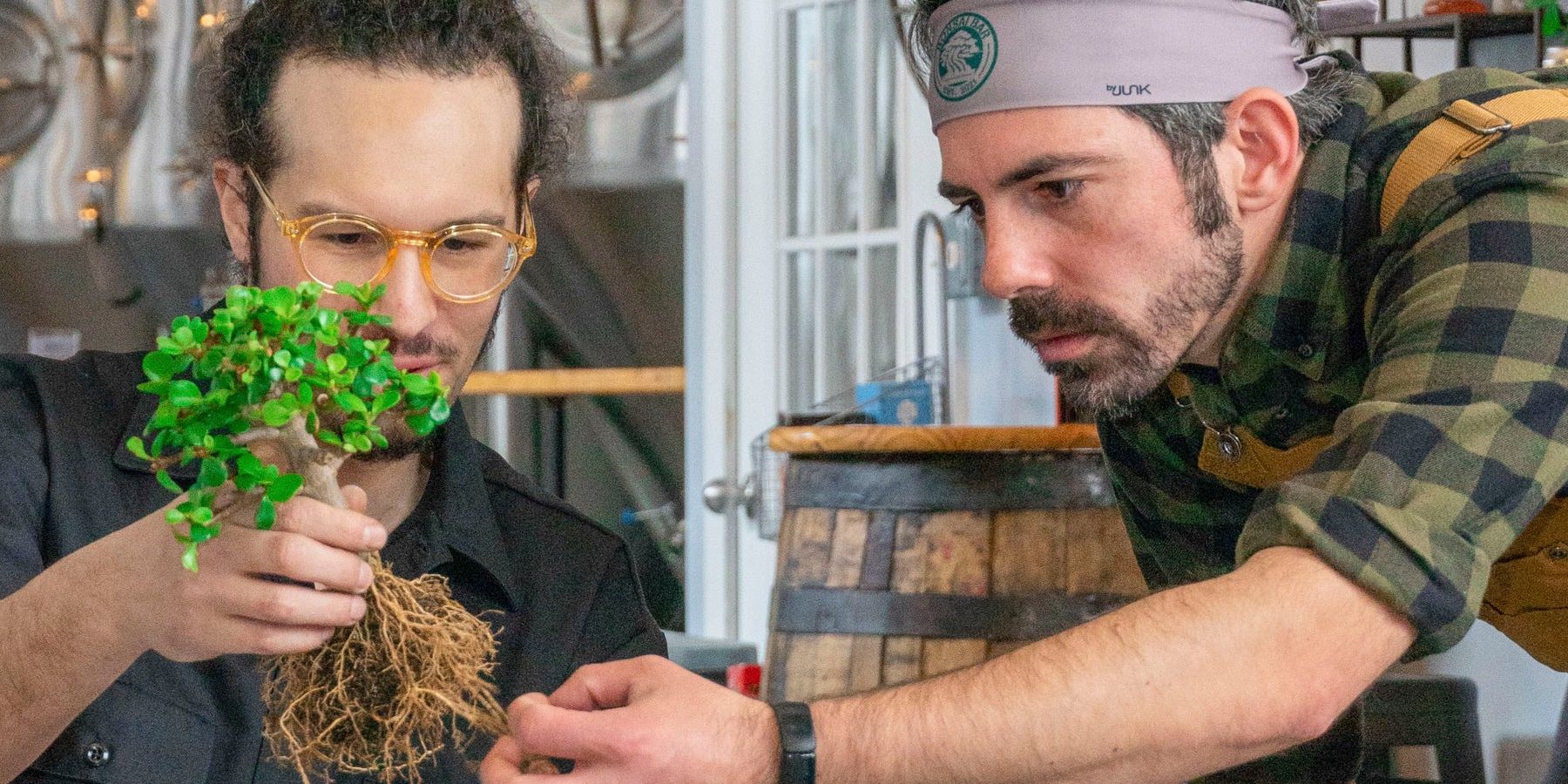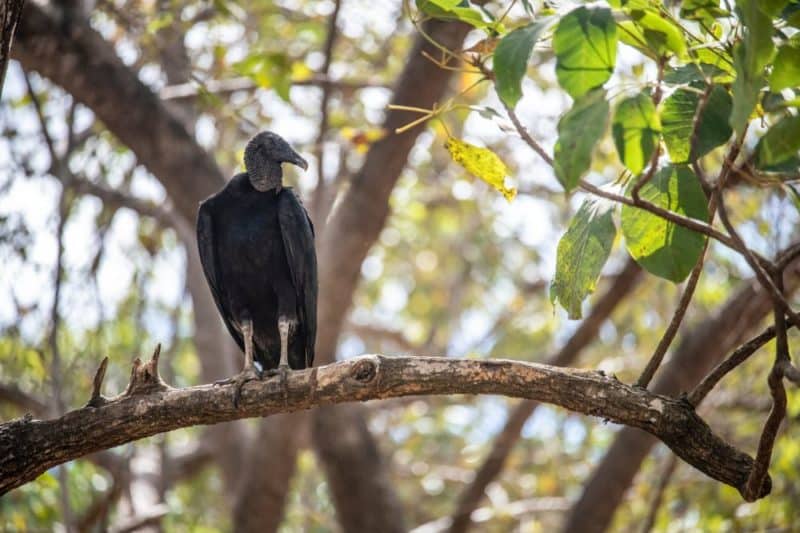
As fall inches closer in New Jersey, nothing sets an ominous tone quite like a recent North Jersey discovery. Eye-catching headlines flooded North Jersey news this week, detailing over 100 black vultures that turned up dead on a trail in Sussex County. According to a New Jersey State Park, Forest, & Historic Sites Facebook post, the Sussex Branch Trail in Lafayette Township had to be officially closed off indefinitely starting on August 27th due to the large number of dead birds decaying in the area. The United States Department of Agriculture officially confirmed the cause of death to be Avian Influenza, otherwise known as bird flu, which has been on the rise in local vultures. In order to prevent the spread of disease and partially due to an understaffing of certified individuals, the New Jersey DEP Fish and Wildlife has left the vultures on site to further decompose. Read on for what we know about the uptick in vulture deaths that has shut down an entire North Jersey trail.
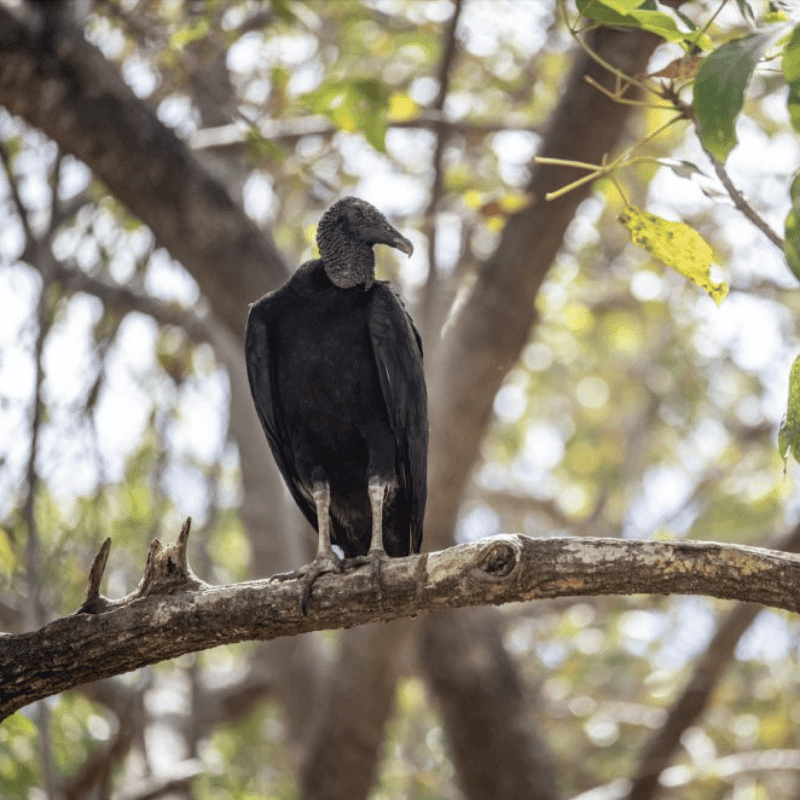
What’s Happening
A New Jersey State Park, Forest, & Historic Sites Facebook post announced on August 27th that the Sussex Branch Trail in Lafayette Township was officially closed due to the high presence of dead and decomposing black vultures.
“A section of the Sussex Branch Trail is closed until further notice from Route 94 to Morris Farms Road in Lafayette due to over 100 black vulture deaths in the area,” the post reads, citing the cause of death as Avian Influenza. The birds have been left to decompose on site, per New Jersey DEP Fish and Wildlife, due to “rough terrain causing accessibility issues and a lack of personnel in the State certified to handle infected birds.”
Read More: How to Kill the Spotted Lanternfly
Failing to properly handle the infected birds can lead to the spread of the disease, though in general, the CDC says the risk of bird-to-human Avian Influenza transmission is currently low. However, exposure to “infections in wild birds might place some groups of people, who may have job-related or recreational exposures to birds, at higher risk of infection,” which could be a factor in the decision to cordon off the Sussex Branch Trail. The CDC explains that human infection is rare, but it can happen if people are directly exposed to enough of the virus in the mucus, saliva, or feces of infected birds. Only 1 human case has been reported in the US this year.
New Jersey DEP Fish and Wildlife explains that vultures have been turning up dead under similar circumstances all around the East Coast. “Black vultures are seemingly very susceptible to Avian Influenza, and they tend to scavenge the carcasses of dead vultures, which can prolong the duration of a local outbreak such as the one being seen in Sussex County,” the website reads. The NJ DEP Fish and Wildlife takes a slightly stronger stance than the CDC when it comes to exposure risk, emphasizing the the risk of bird-to-human transfer of Avian Influenza is “extremely low.”
See More: Hoboken Officially Bans Feeding Wildlife — Including Birds
Just this month, a similar outbreak in Locust Grove, Georgia killed over 700 black vultures at an animal sanctuary. According to the CDC, 2,116 wild birds have been infected with Avian Influenza this year. More than forty million commercial and backyard flocks (like chickens and turkeys) have also been infected.
The trail will remain closed until further notice, and in the meantime, the NJ Department of Agriculture and NJ DEP Fish and Wildlife are said to be monitoring the situation.
also appears in
79 Events in the Montclair + Northern NJ Area This Weekend | June 26-29, 2025
Locals shouldn't let this week's heat wave stop them from having fun. This weekend, there are plenty of things to do in the Montclair area (some of which are indoor events), including a sewing workshop at The Eclectic Chic Boutique in Montclair, a tarot card class at The Space in Montclair, and a comic festival in West Orange. Below is a list of (over 75!) Montclair, Essex County, and Northern New Jersey events happening this weekend, June 26th through June 29th, 2025. Don’t forget — you can submit your community events HERE.
Disclaimer: This is a community resource. Submit events HERE and view the full calendar HERE. The Montclair Girl is not affiliated with hosting unless explicitly stated.

Montclair Flea at Lackawanna Station
Montclair Flea 1 Lackawanna Plaza, Montclair
Saturday + Sunday — June 28th + 29th at 11AM-6PM

Enjoy two days of curated vendors, kid activities, art exhibits, vintage finds, murals, mirco businesses at The Little Shops, bars + tastings, and food trucks. The Ironbound Farmers’ Market is also opening this weekend. The events have free entry and will take place indoors at Lackawanna Station.
Property of the Week: 241 Peshine Avenue #2, Newark

This 4-bed, 2-bath apartment within a two-family home in Newark is available to rent for $2,800 per month. The renovated property features spacious bedrooms, a comfortable layout, and other amenities.
View The Local Girl’s Real Estate Directory here — which has 90+ listings just this week.

18 events found.
Passport Applications at Montclair Public Library – Bellevue Avenue Branch
Montclair Public Library - Bellevue Avenue Branch
185 Bellevue Avenue, Montclair, NJ
Locals can apply for a passport at the Bellevue Avenue Branch of the Montclair Public Library, located at 185 Bellevue Avenue, starting January 27th.
North to Shore Festival at Prudential Center
Prudential Center
25 Lafayette Street, Newark, NJ
The North to Shore Festival will return to Newark on June 17th and will run to June 30th. Expect to see comedians like Tina Fey + Amy Poehler and artists…
The Little Mermaid at Paper Mill Playhouse
Paper Mill Playhouse
22 Brookside Drive, Millburn
See The Little Mermaid at Paper Mill Playhouse from May 29th to June 29th at 22 Brookside Drive, Millburn.
Montclair Film Summer Showcase
Montclair Film
505 Bloomfield Avenue, Montclair, NJ
Montclair Film Summer Showcase will feature the films Sorry, Baby, Twinless, Afternoons of Solitude, Oh, Hi!, Speak., Little Trouble Girls, Happy Holidays, and more from June 26th to June 29th.
Last Day of School Coffee Chat + Pop-up Coworking at Rec Room
Rec Room
1 Lackawanna Plaza, Montclair, NJ
School’s (almost) out. Join Rec Room for a low-key morning coffee and quick brainstorm on what locals actually want summer to feel like—followed by coworking until it’s time to meet…
Free
A to Sze: Collecting at MAM (2000-2025) at Montclair Art Museum
Montclair Art Museum
3 South Mountain Avenue, Montclair, NJ
The Montclair Art Museum, located at 3 South Mountain Avenue, will showcase "A to Sze: Collecting at MAM (2000-2025)," an exhibition showcasing some of the museum's significant acquisitions over the past quarter-century.…
Chess + Coffee at Montclair Public Library
Montclair Public Library
50 S. Fullerton Avenue, Montclair
Come play chess and drink coffee at the Montclair Public Library, located at 50 South Fullerton Avenue, on Thursdays from 2PM to 4PM. Chessboards will be provided, but feel free…
Free
Thursday Art Lounge: Drawing and Painting Eyes at The Space
The Space
356 Bloomfield Avenue Loft 2, Montclair
Sometimes we just need an evening of chill vibes and art making. Twice a month the Space takes an evening shift and we stay open until 10pm to get our…
$10.00
Mix & Mahj at The Park
Round Table Studios
200 Connell Drive, Berkeley Heights, NJ
Mix & Mahj at The Park will feature Mahj 101 lessons for curious newcomers and free play for seasoned players. Enjoy light appetizers and a cash bar with wine, beer, and cocktails as you play,…
$35 – $55
Thursday Group Runs + Walks at Fleet Feet Montclair
Fleet Feet
603 Bloomfield Avenue, Montclair, NJ
Join a friendly social group for walkers, run/walkers, and runners. Attendees will meet at Fleet Feet Montclair and do a 3-mile loop (approximately 30-60 minutes) in that neighborhood. Some people…
Free
Java Love’s Offline Cafe: Game Nights
Java Love (Church Street)
49 Church Street, Montclair, NJ
Java Love Cafe's new Offline Cafe: Game Night, which takes place every Thursday from 6PM to 9PM at 49 Church Street, Montclair, encourages guests to disconnect from their screens and…
Free
Sew + Tell Workshop at The Eclectic Chic Boutique
The Eclectic Chic Boutique
547 Bloomfield Avenue, Montclair, NJ
This class will cover the basics of hand sewing and then evolve into using a standard sewing machine. Guests will become familiar with different fabrics, notions, and techniques.
$70
Parks + Recreation Trivia Night at Calandra’s
Calandras italian village
234 Bloomfield Avenue, Caldwell, NJ
Get your team together for Parks + Recreation Trivia Night on June 26th at La Taverna Lounge located inside Calandra's Italian Village.
Tea + Tarot at The Space
The Space
356 Bloomfield Avenue Loft 2, Montclair
Join The Space, located at 356 Bloomfield Avenue, loft #2, Montclair, for a book club-style round table event featuring tarot decks on May 29th, June 26th, and July 31st from…
$25
Tea and Tarot at The Space
The Space
356 Bloomfield Avenue Loft 2, Montclair
Calling all tarot lovers, both new and seasoned: Introducing Tea & Tarot with @gina.devine. Bring your deck, a mug, and a notebook.
$25.00
Sip + Paint at Made in Miami
Made in Miami
39 Harding Avenue, Clifton, NJ
Sip, paint, and vibe at Made in Miami Bar + Bistro every Thursday with no cover.
Steve Cohn Band at Brvsh Cul7ur3
brvshcul7ur3
482 Cedar Lane, Teaneck, NJ
The music of Steve Cohn has continually and dramatically evolved. See this evolvement with performances by the Steve Cohn Band by purchasing tickets online or paying walk in cover charges…
$29.24
Yoga in the Gallery at Ria x Gallery
Ria x Gallery
204 Bellevue Avenue, Montclair
Join So What Studios every Thursday from 7:30PM to 8:30PM at Ria x Gallery for a cozy, feel-good flow surrounded by beautiful art. Think soft lighting, deep breaths, and stretching…

14 events found.
Passport Applications at Montclair Public Library – Bellevue Avenue Branch
Montclair Public Library - Bellevue Avenue Branch
185 Bellevue Avenue, Montclair, NJ
Locals can apply for a passport at the Bellevue Avenue Branch of the Montclair Public Library, located at 185 Bellevue Avenue, starting January 27th.
North to Shore Festival at Prudential Center
Prudential Center
25 Lafayette Street, Newark, NJ
The North to Shore Festival will return to Newark on June 17th and will run to June 30th. Expect to see comedians like Tina Fey + Amy Poehler and artists…
Montclair Film Summer Showcase
Montclair Film
505 Bloomfield Avenue, Montclair, NJ
Montclair Film Summer Showcase will feature the films Sorry, Baby, Twinless, Afternoons of Solitude, Oh, Hi!, Speak., Little Trouble Girls, Happy Holidays, and more from June 26th to June 29th.
Decamp Estate Sale
101 Greenwood Avenue
101 Greenwood Avenue, Montclair, NJ
Say goodbye to Decamp with an estate sale hosted by The Remember When Antiques and Estate Sales, LLC.
A to Sze: Collecting at MAM (2000-2025) at Montclair Art Museum
Montclair Art Museum
3 South Mountain Avenue, Montclair, NJ
The Montclair Art Museum, located at 3 South Mountain Avenue, will showcase "A to Sze: Collecting at MAM (2000-2025)," an exhibition showcasing some of the museum's significant acquisitions over the past quarter-century.…
Field Station Dinosaurs at Wayne Public Library
Wayne Public Library
461 Valley Road, Wayne, NJ
Paleo Picasso is a thirty-minute, hands-on program where attendees can discover what scientists know – and don’t know – about the color of dinosaurs, learn about dinosaur history, and meet…
Tio Rozay’s BBQ at Montclair Brewery
Montclair Brewery
101 Walnut Street, Montclair, NJ
Pitmaster Hery Acosta of Tio Rozay's BBQ, voted Best Brisket + Best Pulled Pork at the Meadowlands Racetrack BBQ Extravaganza 2023, will serve BBQ at Montclair Brewery.
Free
South African Beer Film Documentary Screening at Montclair Brewery
Montclair Brewery
101 Walnut Street, Montclair, NJ
A Q&A with the filmmaker, Obakeng Malope, will follow this exclusive beer film screening. This film takes viewers on a rich and intimate journey, showcasing the contrasting techniques of modern…
Free
Open Mic with Joe Elefante at Brvsh Cul7ur3
brvshcul7ur3
482 Cedar Lane, Teaneck, NJ
See jazz musician, Joe Elefante's open mic on June 27th at Brvsh Cul7ur3.
Free
Rock, Ribs, + Ridges Festival at Sussex County Fairgrounds
Sussex County Fairgrounds
37 Plains Road, Augusta, NJ
Rock, Ribs, + Ridges Festival, a weekend of the best in southern/classic rock bands and finger-licking barbecue and fixin’s, takes place from June 27th to June 29th at the Sussex…
Summer Sankalpa: A Yoga + Meditation Workshop with Sarah Platt-Finger at Loopwell
Loopwell
80 Maple Avenue, Montclair, NJ
In this special summer session, yoga teacher Sarah Platt-Finger will guide attendees through a transformative Tantric ritual designed to awaken and anchor their personal Sankalpa. Drawing on ancient techniques that…
$75
Black Ass Comedy at Kilkenny Alehouse
Kilkenny Alehouse
27 Central Avenue, Newark
Black Ass Comedy brings its multi-city tour to Newark for a night of smart, loud, and unapologetically Black laughs.
Relax, Restore, + Renew Under the Stars
Using mindfulness techniques, aromatherapy, oracle cards, and a sound bath, Sue Waldman will teach you energy healing techniques to calm your nervous system, quiet your mind, and recalibrate your body…
$95
The Ones You Love: The Songs of R.E.M. Live at Montclair Brewery
Montclair Brewery
101 Walnut Street, Montclair, NJ
See The Ones You Love: The Songs of R.E.M. live at the Montclair Brewery. With shimmering guitars, soaring harmonies, and a passion for R.E.M.’s ever-evolving sound, The Ones You Love…

16 events found.
Passport Applications at Montclair Public Library – Bellevue Avenue Branch
Montclair Public Library - Bellevue Avenue Branch
185 Bellevue Avenue, Montclair, NJ
Locals can apply for a passport at the Bellevue Avenue Branch of the Montclair Public Library, located at 185 Bellevue Avenue, starting January 27th.
North to Shore Festival at Prudential Center
Prudential Center
25 Lafayette Street, Newark, NJ
The North to Shore Festival will return to Newark on June 17th and will run to June 30th. Expect to see comedians like Tina Fey + Amy Poehler and artists…
The Little Mermaid at Paper Mill Playhouse
Paper Mill Playhouse
22 Brookside Drive, Millburn
See The Little Mermaid at Paper Mill Playhouse from May 29th to June 29th at 22 Brookside Drive, Millburn.
Montclair Film Summer Showcase
Montclair Film
505 Bloomfield Avenue, Montclair, NJ
Montclair Film Summer Showcase will feature the films Sorry, Baby, Twinless, Afternoons of Solitude, Oh, Hi!, Speak., Little Trouble Girls, Happy Holidays, and more from June 26th to June 29th.
ParkFit at The Grove
The Grove (Berkeley Heights)
150 Connell Drive, Berkeley Heights
ParkFit is a free 45-minute outdoor strength and cardio-based class program focusing on building muscle, burning fat, and moving your body. Participants will experience a total-body strength and movement training…
Free
Garden State Comic Fest: Summer 2025 at Richard J. Codey Arena
Richard J. Codey Arena
560 Northfield Avenue, West Orange, NJ
Garden State Comic Fest celebrates its 11th year at a new home: Richard J. Codey Arena in West Orange. Right next to Turtleback Zoo, attendees can expect diverse vendors showcasing…
Decamp Estate Sale
101 Greenwood Avenue
101 Greenwood Avenue, Montclair, NJ
Say goodbye to Decamp with an estate sale hosted by The Remember When Antiques and Estate Sales, LLC.
A to Sze: Collecting at MAM (2000-2025) at Montclair Art Museum
Montclair Art Museum
3 South Mountain Avenue, Montclair, NJ
The Montclair Art Museum, located at 3 South Mountain Avenue, will showcase "A to Sze: Collecting at MAM (2000-2025)," an exhibition showcasing some of the museum's significant acquisitions over the past quarter-century.…
Montclair Flea at Lackawanna Station
Lackawanna Station
1 Lackawanna Plaza, Montclair, NJ
Montclair Flea returns for the 2025 season every Saturday and Sunday from 11AM to 6PM at Lackawanna Station, located at 1 Lackawanna Plaza, Montclair. Each week will boast a different…
Prenatal Yoga at Sol Spirit Yoga + Wellness
Sol Spirit Yoga + Wellness
356 Bloomfield Avenue #6, Montclair, NJ
Join Sol Spirit for a 6-week Prenatal Yoga series designed to support guests through every stage of pregnancy. This series offers a safe, welcoming space for expecting mothers to move…
Wim Hof Workshop at Juniper Yoga
Juniper Yoga + Fitness
213 Bellevue Avenue, Montclair, NJ
Learn the 3 pillars of the Wim Hof Method: Breathing Technique, Cold Exposure & Commitment and learn how you can utilize oxygen and cold exposure to optimize body & mind,…
Rock, Ribs, + Ridges Festival at Sussex County Fairgrounds
Sussex County Fairgrounds
37 Plains Road, Augusta, NJ
Rock, Ribs, + Ridges Festival, a weekend of the best in southern/classic rock bands and finger-licking barbecue and fixin’s, takes place from June 27th to June 29th at the Sussex…
The Ghosts of Gwendolyn Montgomery Book-Signing at Montclair Book Center
Montclair Book Center
221 Glenridge Avenue, Montclair, NJ
A book signing featuring Clarence A. Haynes's solo debut novel, The Ghosts of Gwendolyn Montgomery, is coming to the Montclair Book Center. The suspenseful, Ghostbusters-like story is about a super…
Free
HAIR Matinee Performance at Vanguard Theatre
Vanguard Theatre
180 Bloomfield Avenue, Montclair, NJ
Vanguard presents HAIR, running June 12th–29th, 2025. This show is a tribute to love, peace, freedom, and the radical spirit of the 1960s.
Tantric Intimacy Workshop for Couples + Singles with Olga Ribble at The Space
The Space
356 Bloomfield Avenue Loft 2, Montclair
Tantra uses the transformative power of breath, mindful movement, touch, sound, and meditation to move into deeper states of presence and cultivate joy and intimacy with self and the other.…
Tantra: Discover Your Ecstatic Self for Singles + Couples with Olga Ribble at The Space
The Space
356 Bloomfield Avenue Loft 2, Montclair
This Tantric Intimacy Workshop for couples and singles will use the transformative power of breath, mindful movement, touch, sound, and meditation to move into deeper states of presence and cultivate…

19 events found.
North to Shore Festival at Prudential Center
Prudential Center
25 Lafayette Street, Newark, NJ
The North to Shore Festival will return to Newark on June 17th and will run to June 30th. Expect to see comedians like Tina Fey + Amy Poehler and artists…
The Little Mermaid at Paper Mill Playhouse
Paper Mill Playhouse
22 Brookside Drive, Millburn
See The Little Mermaid at Paper Mill Playhouse from May 29th to June 29th at 22 Brookside Drive, Millburn.
Montclair Film Summer Showcase
Montclair Film
505 Bloomfield Avenue, Montclair, NJ
Montclair Film Summer Showcase will feature the films Sorry, Baby, Twinless, Afternoons of Solitude, Oh, Hi!, Speak., Little Trouble Girls, Happy Holidays, and more from June 26th to June 29th.
Legacy Walk 2025 at Clipper Pavilion
Clipper Pavilion at Orange Reservoir
Cherry Lane, West Orange, NJ
Legacy Walk 2025 is a community celebration of life, love, and remembrance. This takes place at the Clipper Pavilion in West Orange.
$28.52
Nutley Summer Farmers’ Market
The Nutley Farmers' Market runs Sundays from June 15th through October 26th and takes place in Downtown Nutley along Booth Drive, from 9AM to 2PM.
16 Erwin Park Yard Sale
The yard sale takes place at 16 Erwin Park, Montclair. Attendees can expect vintage linens and dishware, furniture, silver, drums, bikes, and more.
Free
Speakeasy Thrifts Secondhand Pop-up Shop
There is a hidden trove of second-hand treasure inside a suburban New Jersey warehouse pop-up at 88 Ford Road, Rockaway. No password needed. Locals can dig through the treasure pile.
Free
Denville Farmer’s Market
Farmers Market Denville
51 Bloomfield Avenue, Denville, NJ
The Denville Farmers’ Market is open every Sunday from 10AM to 1PM at the Bloomfield Avenue parking lot in downtown Denville. The market features 25+ vendors ranging from artisan products…
Garden State Comic Fest: Summer 2025 at Richard J. Codey Arena
Richard J. Codey Arena
560 Northfield Avenue, West Orange, NJ
Garden State Comic Fest celebrates its 11th year at a new home: Richard J. Codey Arena in West Orange. Right next to Turtleback Zoo, attendees can expect diverse vendors showcasing…
Tatreez + The Art of Resistance 101 with Sam Sundos x Monty
Monty
12 North Willow Street, Montclair, NJ
Join Monty to learn the intricate craft and rich history of traditional Palestinian embroidery from Brooklyn-based artist Sam Sundos. Learn a new skill and gain a deeper understanding of this…
$115
Montclair Flea at Lackawanna Station
Lackawanna Station
1 Lackawanna Plaza, Montclair, NJ
Montclair Flea returns for the 2025 season every Saturday and Sunday from 11AM to 6PM at Lackawanna Station, located at 1 Lackawanna Plaza, Montclair. Each week will boast a different…
Houss Freya’s Pride Market
Houss Freya
205 Glenridge Avenue, Montclair
Join Houss Freya for its first-ever Pride Market. There will be 12 LGBTQ+ makers + artists who will be featured on the upper and lower levels. Readings from Astropapi will…
Free
Holding Space + Being in Community: A Monthly Support Group for Transgender and Gender Non-Conforming Individuals at The Space
The Space
356 Bloomfield Avenue Loft 2, Montclair
This is a sacred circle where folks who exist outside the binary are free to show up as themselves. It is an invitation to explore gender identity, speak truth, and share…
$10
Rock, Ribs, + Ridges Festival at Sussex County Fairgrounds
Sussex County Fairgrounds
37 Plains Road, Augusta, NJ
Rock, Ribs, + Ridges Festival, a weekend of the best in southern/classic rock bands and finger-licking barbecue and fixin’s, takes place from June 27th to June 29th at the Sussex…
60 Years of The Beatles in America at Drew Concert Hall
Concert Hall at Drew University
36 Madison Avenue, Madison, NJ
Hosted by Charles F. Rosenay and Erik Taros, this event features captivating stories, behind-the-scenes insights, an interactive Q+A, and an after-show meet-and-greet. This takes place on June 29th from 3PM…
$30
Moving with Water: Yoga + Watercolor Workshop at The Space
The Space
356 Bloomfield Avenue Loft 2, Montclair
Led by Alysha, this class invites you to explore the transformative power of art to unlock deeper self-awareness, well-being, and joy. Through guided meditations, gentle yoga practices, and fun watercolor explorations,…
$45
Moving with Water at The Space
The Space
356 Bloomfield Avenue Loft 2, Montclair
This class combines yoga, breath work, and watercolor painting to connect with blocks and tune into what guests want to call in.
$45
Jazzboat Live at Montclair Brewery
Montclair Brewery
101 Walnut Street, Montclair, NJ
Don't miss the return of the always exciting Jazzboat at the Montclair Brewery, located at 101 Walnut Street, on June 29th from 5:30PM to 7:30PM. These seasoned musicians perform R+B, Soul,…
$5
Live an Enchanted Grateful Life
Join Verona Psychotherapist and Certified Executive Coach, Sue Waldman, for an evening of delight, celebration, connection, and sharing outdoors in Sue's garden. Wear comfortable, layered clothes and bring a writing…
$95

16 events found.
North to Shore Festival at Prudential Center
Prudential Center
25 Lafayette Street, Newark, NJ
The North to Shore Festival will return to Newark on June 17th and will run to June 30th. Expect to see comedians like Tina Fey + Amy Poehler and artists…
Bonsai Workshop at Seven Tribesmen Brewery
Seven Tribesmen Brewery
1151 NJ-23, Wayne, NJ
Learn the fundamental skills and techniques behind the art of bonsai while enjoying a night out with friends on June 30th from 6PM to 8PM at Seven Tribesmen Brewery, located…
$85
Bonsai Workshop at Seven Tribesmen Brewery
Seven Tribesmen Brewery
1151 NJ-23, Wayne, NJ
Learn the fundamental skills and techniques behind the art of bonsai while enjoying a night out with friends on May 26th, June 30th, and July 28th from 6PM to 8PM…
$85
Success Strategies for Selling a Home at Montclair Public Library
Montclair Public Library
50 S. Fullerton Avenue, Montclair
The goal of this workshop is to empower guests with a greater understanding of the current real estate market and discover the top strategies for selling or buying a home.
Free
Yoga Class at Women’s Club of Glen Ridge
Women's Club of Glen Ridge
219 Ridgewood Avenue, Glen Ridge
The Women’s Club of Glen Ridge will host yoga classes led by Vinni Taneja, owner and founder of Chakra Wellness, on Monday evenings from 7PM to 8PM in the second…
Tech Help Tuesdays: One-on-One Drop-ins at Montclair Public Library
Montclair Public Library
50 S. Fullerton Avenue, Montclair
Participants will be able to receive one-on-one assistance with digital literacy and technology inquiries. Please inquire at the Reference Desk on the second floor.
Free
Bonsai Workshop at Twin Elephant Brewing Company
Twin Elephant Brewing Company
13 Watchung Avenue, Chatham, NJ
Learn the fundamental skills and techniques behind the art of bonsai while enjoying a night out with friends on July 1st from 6PM to 8PM at Twin Elephant Brewing Company,…
$85
Tuesday Night Open Studio Figure Drawing at The Space
The Space
356 Bloomfield Avenue Loft 2, Montclair
This Open Studio Figure Drawing class on Tuesdays from 7PM to 9:30PM at The Space, located at 56 Bloomfield Avenue Loft #2, Montclair, provides a creative and dynamic environment for artists…
$20 – $70
Passport Applications at Montclair Public Library – Bellevue Avenue Branch
Montclair Public Library - Bellevue Avenue Branch
185 Bellevue Avenue, Montclair, NJ
Locals can apply for a passport at the Bellevue Avenue Branch of the Montclair Public Library, located at 185 Bellevue Avenue, starting January 27th.
Wine Wednesdays at Spuntino Clifton
Spuntino Wine Bar & Tapas
70 Kingsland Road, Clifton, NJ
Join Spuntino Wine Bar + Italian Tapas every Wednesday for 50% off select bottles of wine – all day long.
Summer Literacy + Leadership Program at Glenfield Middle School
Glenfield Middle School
25 Maple Avenue, Montclair, NJ
Hosted by the Freedom School @ The Mark, this six-week summer literacy + leadership program for kids takes place from Monday, June 30th to Friday, August 8th from 8:30AM to 3PM…
Sweet Pea Summer Camp at Montclair Community Farms
Montclair Community Farms
108 Orange Road, Montclair
Each class will run for one week on Monday - Thursday from 9AM to 1PM at Montclair Community Farms and dive into a different farm topic to excite young learners…
One-on-One Tech Support Sessions with Montclair Gateway to Aging in Place at MPL
Montclair Public Library
50 S. Fullerton Avenue, Montclair
Montclair Gateway to Aging in Place is offering drop-in one-on-one tech support. These technology improvement classes (SS/ST Classes) are tailored specifically for seniors. Bring your device and your questions.
Free
South Orange Farmers Market
Sloan Street Parking Lot
12 Sloan Street, South Orange
South Orange Downtown will kick off the 34th season of the Farmers Market on Wednesday, June 4th, with new hours from 1PM to 6PM in the Sloan Street Parking Lot,…
Free
Bonsai Workshop at Jersey Cyclone Brewing Company
Jersey Cyclone Brewing Company
14 Worlds Fair Drive Unit J, Somerset, NJ
Learn the fundamental skills and techniques behind the art of bonsai while enjoying a night out with friends on July 2nd, July 16th, and July 30th from 6PM to 8PM…
$85
Breathwork Experience with Julie & Billy at Loopwell
Loopwell
80 Maple Avenue, Montclair, NJ
Billy and Julie will guide you through an overview of the therapeutic benefits breathwork can provide for your own self-care and well-being, step-by-step instruction on this specific three-part active breathing…
$40

4 events found.
Java Love’s Offline Cafe: Game Nights
Java Love (Church Street)
49 Church Street, Montclair, NJ
Java Love Cafe's new Offline Cafe: Game Night, which takes place every Thursday from 6PM to 9PM at 49 Church Street, Montclair, encourages guests to disconnect from their screens and…
Free
Field Station Dinosaurs at Wayne Public Library
Wayne Public Library
461 Valley Road, Wayne, NJ
Paleo Picasso is a thirty-minute, hands-on program where attendees can discover what scientists know – and don’t know – about the color of dinosaurs, learn about dinosaur history, and meet…
Summer Literacy + Leadership Program at Glenfield Middle School
Glenfield Middle School
25 Maple Avenue, Montclair, NJ
Hosted by the Freedom School @ The Mark, this six-week summer literacy + leadership program for kids takes place from Monday, June 30th to Friday, August 8th from 8:30AM to 3PM…
Sweet Pea Summer Camp at Montclair Community Farms
Montclair Community Farms
108 Orange Road, Montclair
Each class will run for one week on Monday - Thursday from 9AM to 1PM at Montclair Community Farms and dive into a different farm topic to excite young learners…

8 events found.
Chess + Coffee at Montclair Public Library
Montclair Public Library
50 S. Fullerton Avenue, Montclair
Come play chess and drink coffee at the Montclair Public Library, located at 50 South Fullerton Avenue, on Thursdays from 2PM to 4PM. Chessboards will be provided, but feel free…
Free
Thursday Group Runs + Walks at Fleet Feet Montclair
Fleet Feet
603 Bloomfield Avenue, Montclair, NJ
Join a friendly social group for walkers, run/walkers, and runners. Attendees will meet at Fleet Feet Montclair and do a 3-mile loop (approximately 30-60 minutes) in that neighborhood. Some people…
Free
Java Love’s Offline Cafe: Game Nights
Java Love (Church Street)
49 Church Street, Montclair, NJ
Java Love Cafe's new Offline Cafe: Game Night, which takes place every Thursday from 6PM to 9PM at 49 Church Street, Montclair, encourages guests to disconnect from their screens and…
Free
Historic DeCamp Bus Lines Liquidation Sale
DeCamp Bus Lines
101 Greenwood Avenue, Montclair, NJ
The Remember When Antiques and Estate Sales, LLC team travels to Montclair, NJ, for a once-in-a-lifetime liquidation sell-off of the historic DeCamp Bus Lines. Items range from antique photos from…
Free
South African Beer Film Documentary Screening at Montclair Brewery
Montclair Brewery
101 Walnut Street, Montclair, NJ
A Q&A with the filmmaker, Obakeng Malope, will follow this exclusive beer film screening. This film takes viewers on a rich and intimate journey, showcasing the contrasting techniques of modern…
Free
ParkFit at The Grove
The Grove (Berkeley Heights)
150 Connell Drive, Berkeley Heights
ParkFit is a free 45-minute outdoor strength and cardio-based class program focusing on building muscle, burning fat, and moving your body. Participants will experience a total-body strength and movement training…
Free
Nutley Summer Farmers’ Market
The Nutley Farmers' Market runs Sundays from June 15th through October 26th and takes place in Downtown Nutley along Booth Drive, from 9AM to 2PM.
Montclair Flea at Lackawanna Station
Lackawanna Station
1 Lackawanna Plaza, Montclair, NJ
Montclair Flea returns for the 2025 season every Saturday and Sunday from 11AM to 6PM at Lackawanna Station, located at 1 Lackawanna Plaza, Montclair. Each week will boast a different…

CASA for Children of Essex County | 212 Washington Street #912, Newark
CASA for Children of Essex County specializes in serving children placed in foster care. CASA — aka “Court Appointed Special Advocates” — helps children find safe, permanent homes as quickly as possible. CASA’s values are rooted in believing that children in foster care deserve equal opportunities to thrive. Learn more here.
Jersey Cares | 290 West Mount Pleasant Avenue Suite #1320, Livingston
Jersey Cares is on a mission to increase the level of volunteer involvement in the state of New Jersey. Since 1993, this organization has been dedicated to the community to partner with volunteers from all areas. From environmental conservation to education and more, Jersey Cares can provide opportunities in various areas of interest. Learn more here.
Montclair Fund for Women | 41 Watchung Plaza #72, Montclair
Originally known as the Young Colored Women’s Christian Association, this organization was founded by African-American women who came to Montclair in search of education, employment, and opportunity. As time passed, the organization not only changed its name but it joined forces with women of all backgrounds and became a prominent force in the community. Since its inception, the Montclair Fund for Women has given over $800,000 in grants to provide opportunities to women. Learn more here.
Exploring Bloomfield’s Broad Street: 36 Spots to Visit
Fish Delish: A Montclair Seafood Restaurant With Roots in Croatia
Have an event you’d like to include? Submit it to our events calendar here. You can also email advertising@themontclairgirl.
To stay in the know with all the Montclair and Northern New Jersey happenings, follow @themontclairgirl on Instagram and TikTok, and sign up for our weekly newsletter that shares the top stories to your inbox here.
Have a great weekend, xo









